When crafting a business proposal, clarity and professionalism are key in outlining your terms and conditions. This section serves as a guiding light for both parties, ensuring that expectations are met and misunderstandings are minimized. By presenting your terms clearly, you set the stage for a successful partnership built on trust and transparency. Curious to learn more about how to structure your proposal effectively?

Scope of Services
The scope of services outlines the specific tasks and responsibilities that will be undertaken as part of the agreement between the contracting parties. For instance, a digital marketing agency may offer services including search engine optimization (SEO) to improve website visibility in search engines, content creation involving blog posts or social media updates targeting specific demographics, and pay-per-click advertising for ROI maximization. Additionally, the timeline for deliverables, such as the completion of a website redesign project within three months, will be detailed, ensuring alignment on expectations. Furthermore, the inclusion of periodic performance reviews, such as monthly project progress meetings, will ensure transparency and facilitate ongoing communication. Each service offered will include clearly defined objectives, methodologies, and metrics for success to ensure accountability and measure the effectiveness of the project.
Payment Terms
Payment terms in business proposals are critical to establishing clear financial expectations. Standard payment terms may include 30 days from the invoice date, commonly referred to as net 30, allowing clients ample time for processing. Discounts for early payments, such as 2% off if paid within 10 days, incentivize prompt transactions. For large projects exceeding a specific value, milestone payments may be incorporated, with percentages required at project phases such as 25% upon contract signing, 50% upon initial delivery, and the final 25% upon project completion. Additionally, non-payment may lead to late fees, often calculated as a percentage of the outstanding amount per month, ensuring timely settlements. Clarity in these terms ensures mutual understanding and fosters positive business relationships.
Confidentiality
Confidentiality in business proposals is crucial for protecting sensitive information. Confidentiality agreements, commonly referred to as Non-Disclosure Agreements (NDAs), establish a legal framework ensuring that shared proprietary information, including trade secrets, financial data, and intellectual property, remains secure. In established terms of a business proposal, a confidentiality clause typically outlines the duration of protection, obligations of both parties, and consequences for breaches. For instance, when two companies, such as ABC Technologies and XYZ Innovations, enter a potential partnership, they must agree to keep shared information private for a predetermined period, often between two to five years. This assures companies that their trade secrets, like advanced algorithms or market strategies, will not be disclosed to competitors, fostering trust and facilitating open communication during negotiations.
Termination Clause
In business proposals, the Termination Clause outlines the circumstances under which either party may terminate the agreement, ensuring clarity and legal protection. It typically specifies conditions such as breach of contract, failure to meet agreed deadlines, or insolvency, which refers to financial inability to fulfill obligations. The clause may define the notice period, often ranging from 30 to 90 days, allowing for proper communication and transition. Additionally, it may include provisions for the return of confidential information and payment for completed work, ensuring that both parties are fairly treated in the winding down process. Furthermore, it may outline any penalties or fees associated with premature termination, instilling accountability in contractual relationships.
Governing Law
Governing law refers to the legal system that will oversee and interpret the business agreement's terms. For instance, many companies operating in New York typically select New York State law for binding agreements, providing clarity in case of disputes. This legal framework governs rights, obligations, and any legal outcomes stemming from the contract. Additionally, specifying governing law helps establish jurisdiction, indicating which courts would handle legal proceedings. Another common choice is Delaware law, favored by corporations for its business-friendly legal structures. Understanding the implications of the chosen governing law is crucial for both parties involved in the proposal.
Letter Template For Business Proposal Terms And Conditions Samples
Letter template of business proposal terms and conditions for partnership agreements.
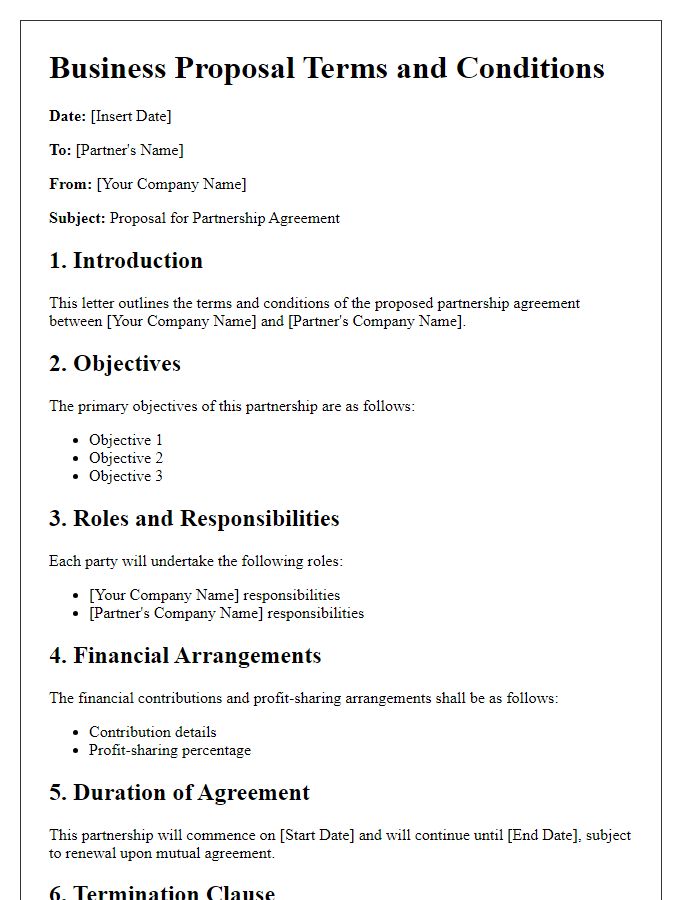
Letter template of business proposal terms and conditions for project collaboration.
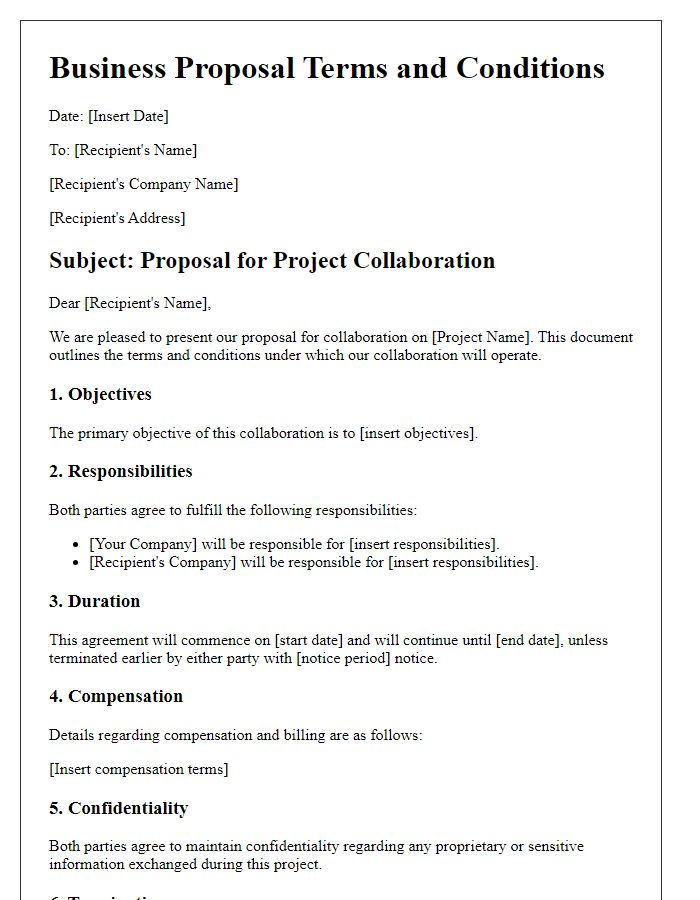
Letter template of business proposal terms and conditions for service agreements.
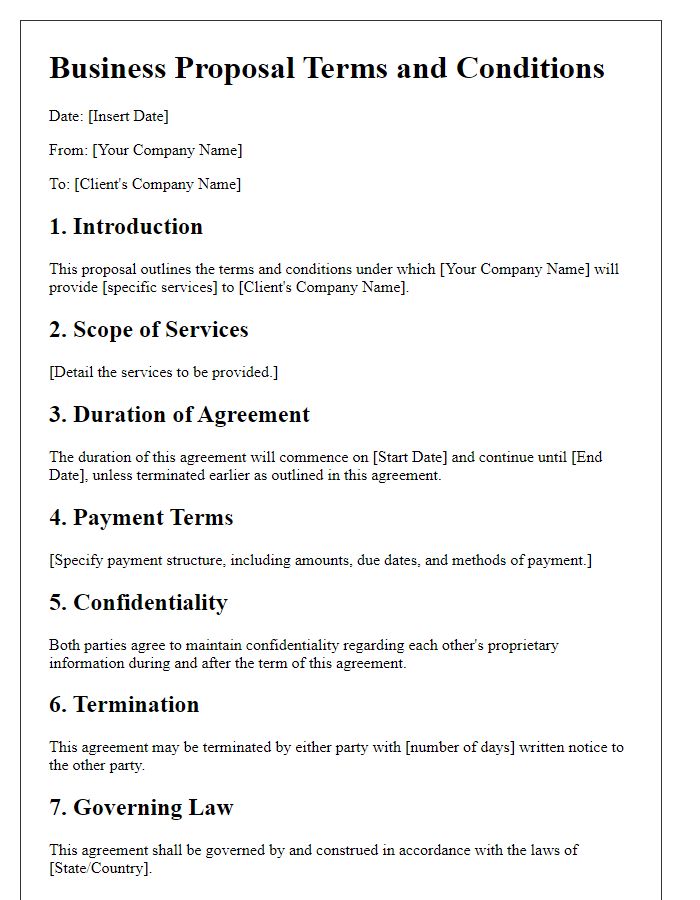
Letter template of business proposal terms and conditions for contract negotiations.
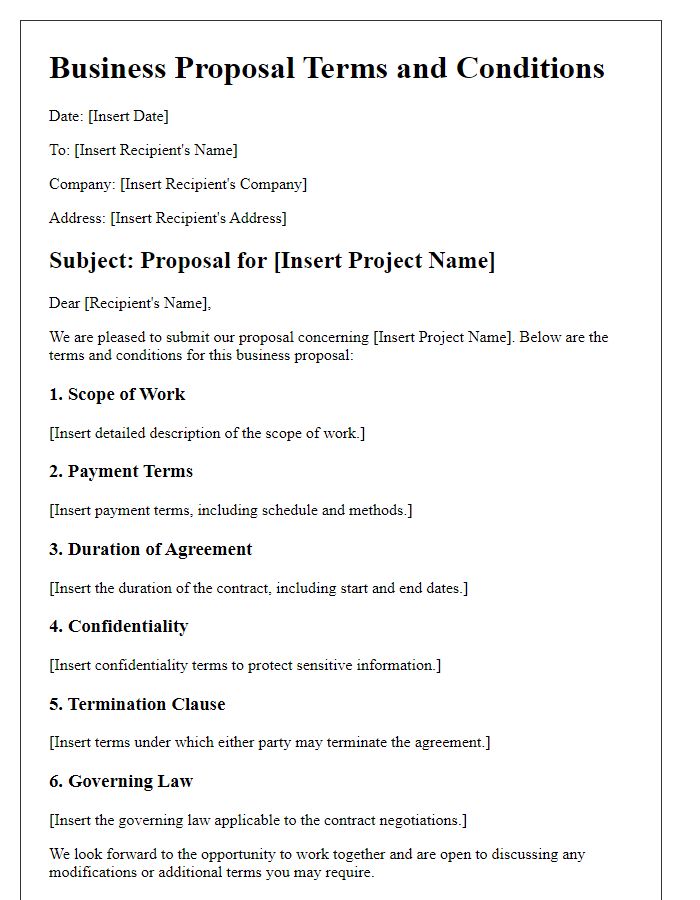
Letter template of business proposal terms and conditions for client engagement.
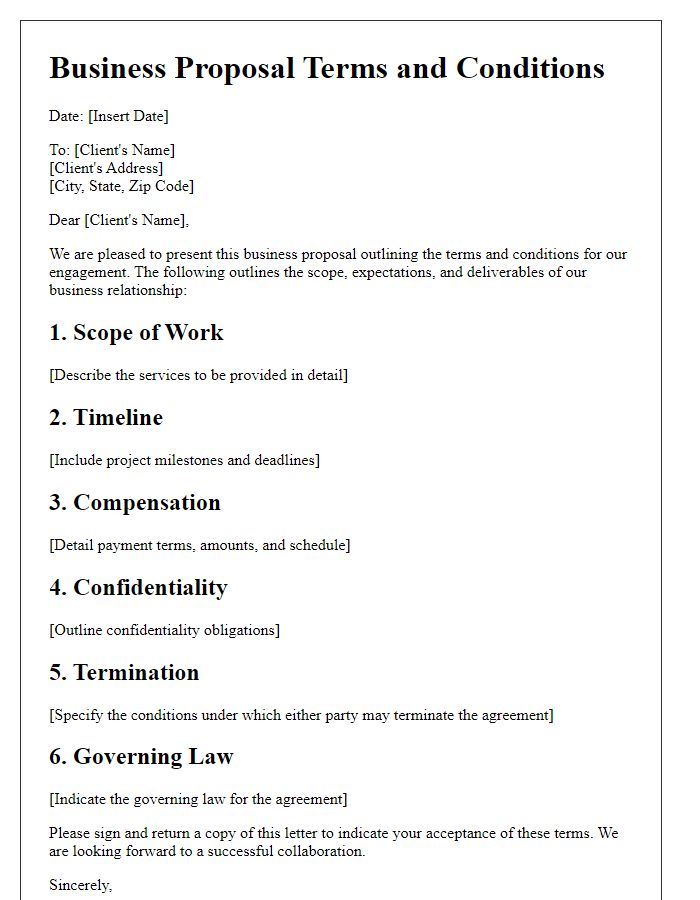
Letter template of business proposal terms and conditions for vendor agreements.
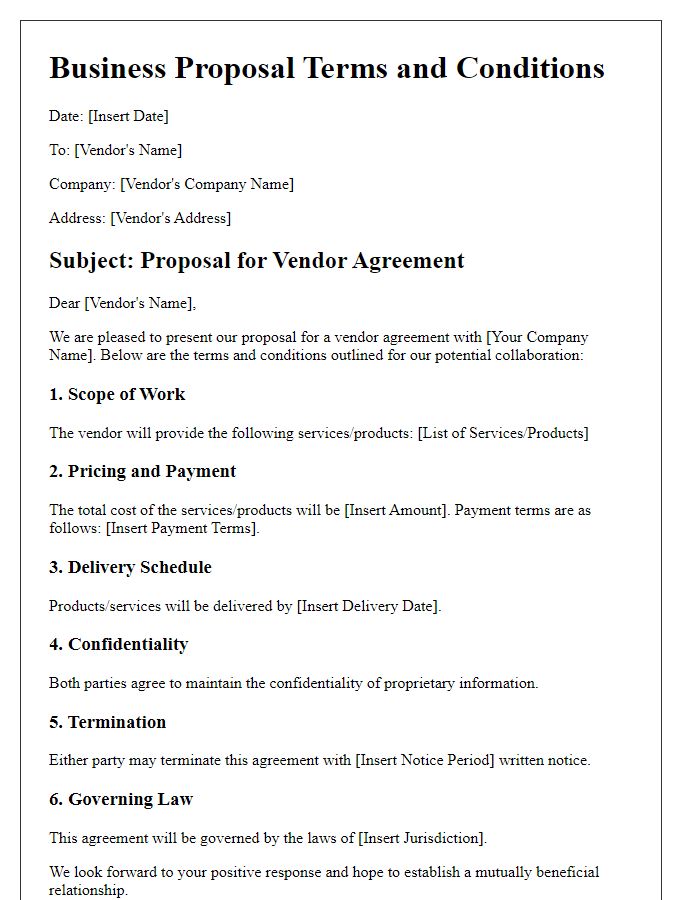
Letter template of business proposal terms and conditions for investment opportunities.
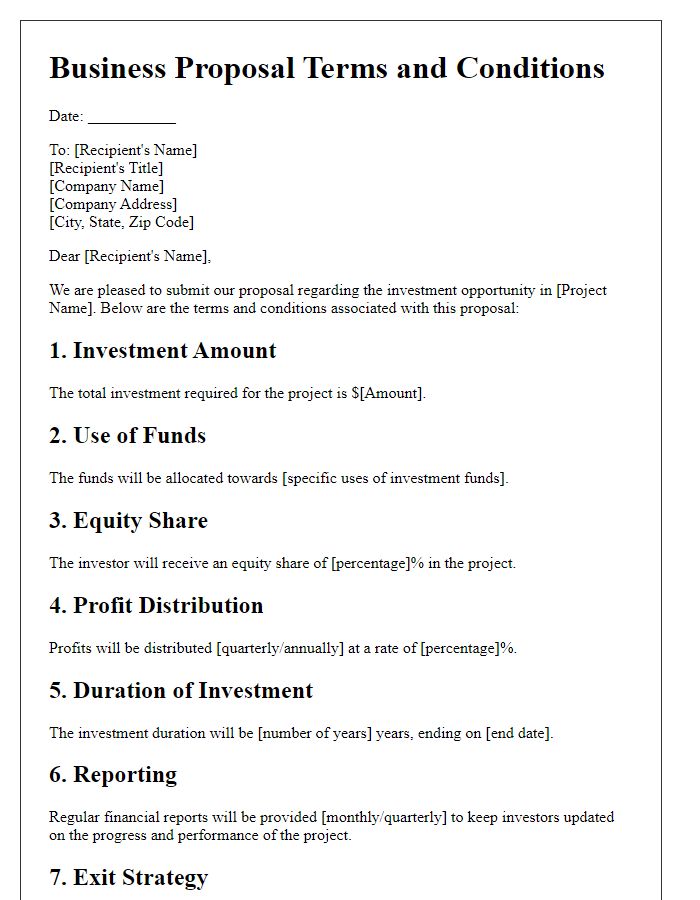
Letter template of business proposal terms and conditions for joint ventures.
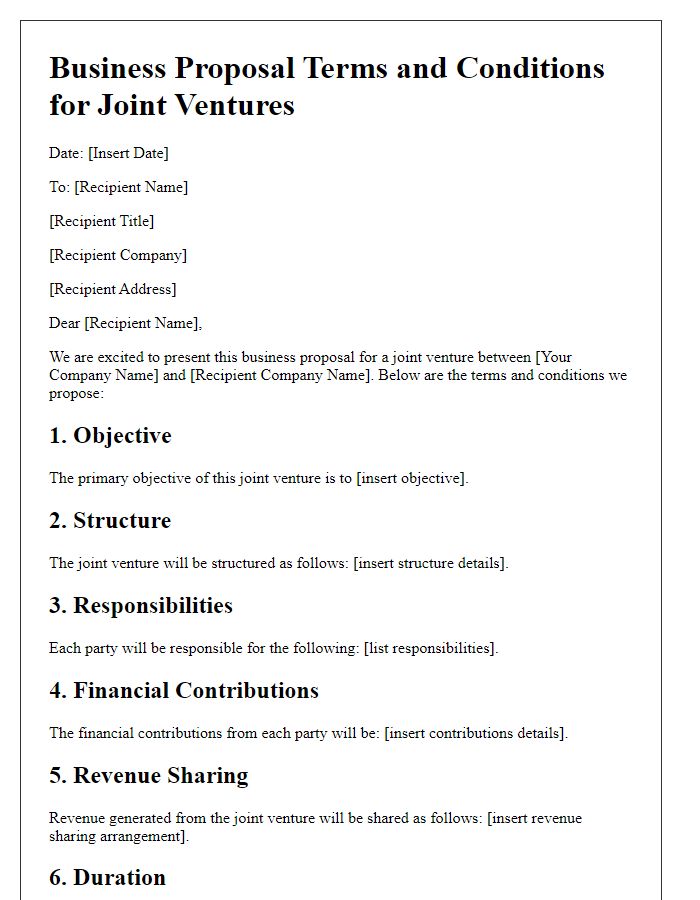
Letter template of business proposal terms and conditions for licensing deals.
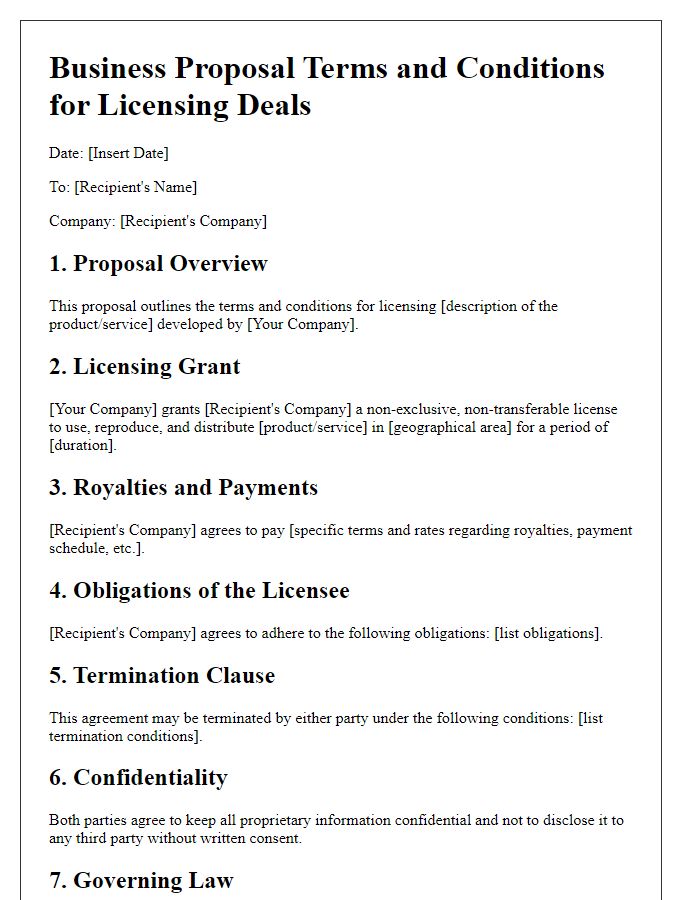

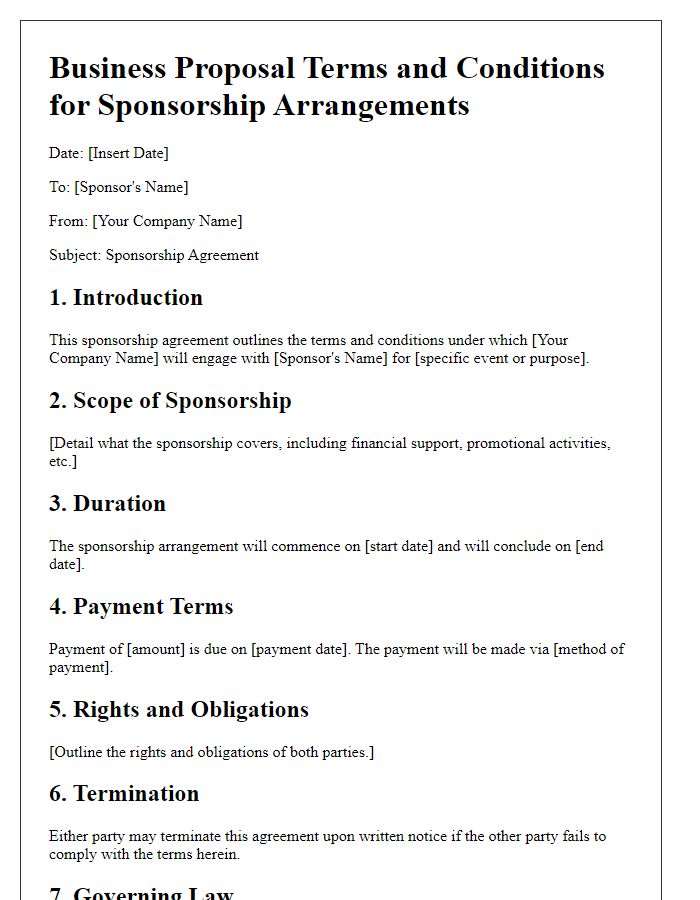


Comments